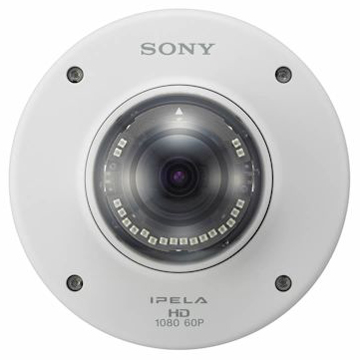
As we have mentioned in the past, the best IP camera is related directly to the application. In our current comparison testing, we focused on the features that are most important such as low light performance, wide dynamic range, and resolution.
In this review, we compared the resolution of the Samsung SMV-6084R, Sony VM630, Hikvision DS-2CD7254FWD, and IPX DDK-1700D cameras. The test was carried out in good lighting and with similar lens angle settings. Note that actual resolution is also affected by the amount of light, dynamic range, and camera noise. All these factors must be considered in real-world applications. Please take a look at our article, Understanding IP Camera Resolution Specifications that discuss this in more detail.
We used the EIA-1956 resolution test chart which was originally designed for analog cameras.
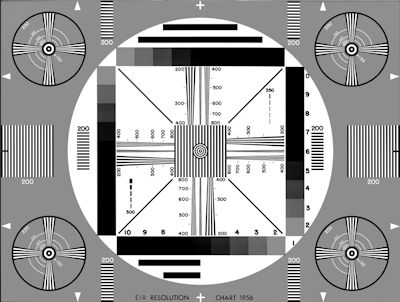
A TV line is different than pixel resolution that is used with IP cameras, but it still is a good way to compare cameras. The maximum resolution is determined by the smallest black and white transition that can be seen.
Our intern, Eli Schildkraut, spent a lot of time making sure that the field of view covered the edge to edge region of the chart. The maximum resolution is defined as the point where the converging back and white lines become indistinguishable. With the camera focusing exclusively on the test chart we were able to record where the lines became indistinct (where you could not see black and white transition).
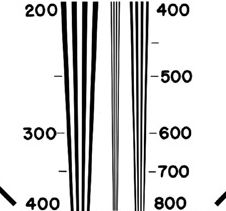
Once we captured a picture of the complete chart we used a graphic program to digitally zoom in to a portion of the chart that showed the detail of resolution.
This area of the chart has three sets of converging lines. The bars on the left indicated a resolution of between 200 and 400 lines. The set on the right ranges from 400 to 800 and the bars in the center range from 800 to 1600. Since we were measuring megapixel IP cameras, we always examined the center bars.
Because we couldn’t always match the aspect ratio of the camera to the 3:4 aspect ratio of the test pattern we usually only measured horizontal resolution. We did some tests that indicated that the vertical resolution matched the horizontal measurement. This is not true with the old analog cameras which provide different resolutions in the horizontal (usually more) and the vertical direction.
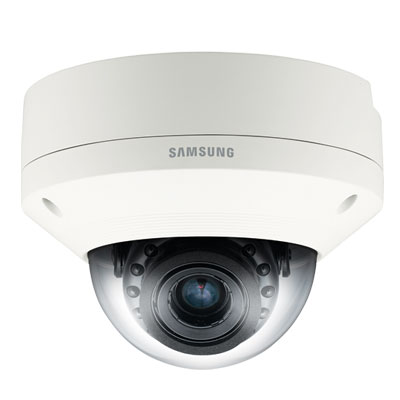
This 2-megapixel camera is rated at a maximum of 1920 x 1080 pixel resolution. This provides a wide aspect ratio of 9:16 which is similar to other 2 megapixel cameras.
It has a motorized lens that can be adjusted between 3 and 8.5 mm, providing a viewing angle of 105.5 and 37.1 degrees. The camera also has remote focus.
We tested the SNV-6084R. There are three other models in this series that have similar resolutions. The SND-6084 (indoor), SND-6084R (indoor with IR), SNV-6084 (outdoor), and SNV-6084R (outdoor with IR).
Result: The camera provided a clear and sharp image. The resolution of the Samsung camera was measured at just under 1200 lines.
The Sony dome IP camera is specified at 2-megapixel with a resolution of 1920 x 1080. The aspect ratio is 9:16. The camera includes a motorized zoom lens and remote focus capability. The lens varies between 3 mm to 9.0 mm (105° to 35.0°). There are two series of cameras that have the same resolution. The economic “EM” series doesn’t have all the features and the “VM series that include audio, IO, and storage. Both series include indoor, indoor, and vandal resistant, and outdoor models.
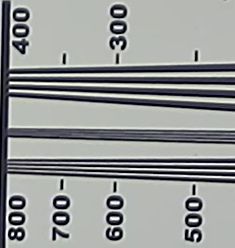
The camera provided excellent resolution. We measured both the horizontal and vertical resolution. The section of the test chart shown below is showing the vertical resolution.
To do this test correctly, we had to make sure that the field of view for the chart was adjusted correctly so that the chart covered the full vertical area viewed.
The Result: The lines converged at just over 1200 which was the best of all the cameras tested.
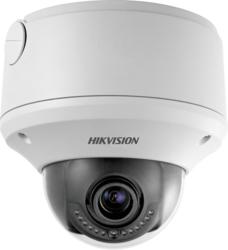
Hikvision DS-2CD7254FWD
This is a 3 Megapixel camera, with a maximum resolution of 2048×1536. This provides an aspect ratio of 3:4.
Note that there is a small horizontal resolution difference between 2-megapixel cameras that have aspect ratios of 9:16 vs 3-megapixel cameras with a 3:4 aspect ratio. The horizontal resolution is 1920 pixels in a 2-megapixel camera, while it is 2048 pixels in the 3-megapixel camera. To compensate for the slight horizontal resolution we changed the resolution to 2 Megapixel (1920 x 1080) so it would be at the same resolution as the Sony and Samsung 2 megapixel cameras we tested.
The camera has a motorized zoom lens that varies between 2.7 ~ 9 mm (101° – 30.4°). It also has a remote focus making it easy to set up. All these adjustments are available in the live view screen, so you don’t have to switch to the setup screens.
The result: We measured the camera at about 1100 lines.
IPX DDK-1700D
This is a 2-megapixel camera with a resolution of 1920 x 1080. It has a manual lens that can be varied between 3 to 9 mm. It does not have a remote focus which makes it more difficult to set up.
This economical indoor/outdoor camera surprised us. We had expected that there would be reduced resolution, but it provided the same clarity as the more expensive brands.
The result: Resolution was measured at close to 1200 lines making it almost as good as the Samsung camera.
Conclusion
Our test and review of megapixel IP cameras compared four megapixel IP cameras. We normalized the camera configurations and settings so we could provide head to head comparison of performance. The best camera was the Sony VM630 which was measured at just over 1200 lines. The Samsung dome camera displayed almost the same resolution.
The camera resolution test was performed with good lighting, so care should be taken when using any of these cameras in a real-world environment where there is low light or very wide lighting conditions.